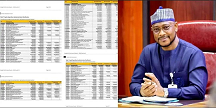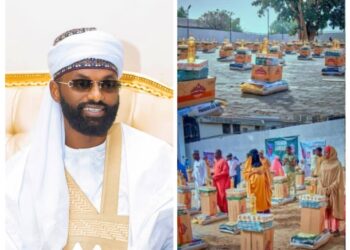The Zamfara State of the All Progressives Congress (APC) Akida has criticized Governor Dauda Lawal for allocating N1.4 billion for food purchases and N3.681 billion for international travel in 2024, while insecurity continues to devastate the state.
In a statement issued on Saturday, the group’s spokesperson, Yusha’a Faruq, accused the governor of neglecting the security of Zamfara residents despite the alarming rate of kidnappings, killings, and terrorist attacks.
“Despite facing ongoing terrorism, kidnappings, and killings, the state government allocated a minimal budget to internal security. Of the N13.1 billion initially proposed, only N800 million was approved, and a mere N30 million was spent on capital projects for the Ministry of Internal Security,” Faruq stated.
The group expressed concerns over what they described as the governor’s “self-enrichment” at the expense of the people, claiming that previous administrations under former governors Abdul-Aziz Yari and Bello Matawalle,12 years together did not receive as much federal funding as Governor Lawal has collected within 20 months.
“Zamfara residents are facing hunger and hardship, yet the government prioritizes luxury spending over their welfare,” the statement added.
He said Sahara Reporters on Friday, highlighted how the state government allocated a significantly larger budget for international travel than for internal security, despite the worsening security situation.
The security crisis in Zamfara was further highlighted on Thursday, February 13, when protesters set ablaze the palace of the Emir of Maru following the kidnapping of 10 people, including the Chief Imam of the Maru Central Mosque, his two wives, and seven children.
He terrorists attacked the town, shooting to intimidate residents before abducting the victims. This incident is one of many recent abductions that have left communities in fear.
The APC Akida group accused Governor Lawal of failing in his role as the state’s chief security officer, arguing that his administration is more focused on luxury than addressing the insecurity plaguing Zamfara.
“A leader is supposed to be transparent and lead with integrity. Instead, what we have in Zamfara today is a media-show governor who prioritizes buying luxury cars, designer watches, and expensive shoes while the people suffer,” the statement concluded.





